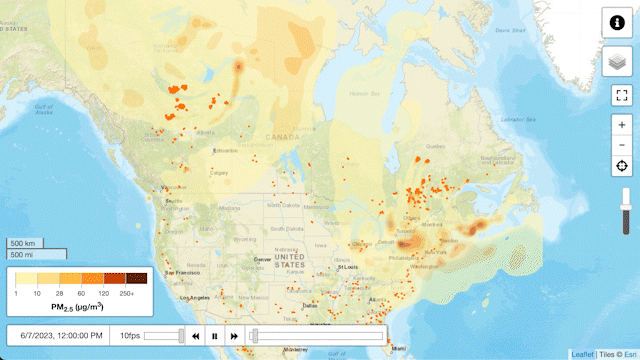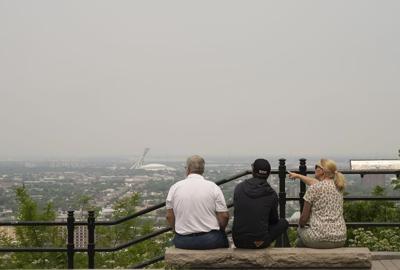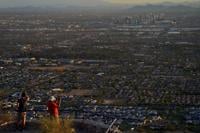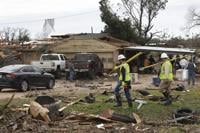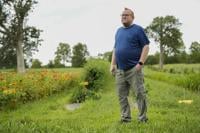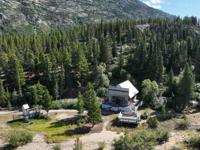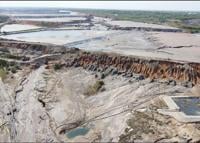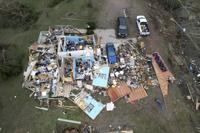As wildfires continue to rage in parts of Western and Central Canada, the smoke is blanketing cities and communities far away from the blazes and triggering air quality alerts.
As of early Wednesday afternoon, Environment Canada's air quality index warned of a "very high risk" in eastern Ontario cities, including Ottawa, and in Gatineau, Que.
Other cities and towns in Quebec and Ontario varied between "high risk" and "moderate risk." In B.C., the Central Fraser Valley was designated "moderate risk."
Here's what this all means for you and how to stay safe.
HOW DO I KNOW IF I SHOULD BE TAKING PRECAUTIONS?
"Smoke can be harmful to everyone's health, even at low concentrations," said Trudy Kidd, a warning preparedness meteorologist for Environment Canada.
"It's everybody's personal preference how they take care of their own bodies," she said.
If you smell smoke, she recommends staying inside, keeping the doors and windows closed "as long as the temperature of your home is comfortable."
"You don't want to replace one risk with another," she said, noting that it's also dangerous for people to overheat.
If that's the case, people might want to consider going to a library, community centre, or a shopping centre, she said.
HOW DO I FIND OUT MY LOCAL AIR QUALITY READING?
Environment Canada's air quality index is at You can take a look at the ratings in communities across your province or territory.
A rating of 1-3 is low risk, 4-5 is moderate risk, 7-10 is high risk and over 10 is very high risk.
The risk designations can change regularly in the same city, Kidd said, so it's important to keep checking the air quality forecast.
WHAT DO ENVIRONMENT CANADA'S RISK RATINGS MEAN?
"Low risk" means everyone can safely be outdoors, Environment Canada's air quality health index says.
"Moderate risk" means the general population don't need to change their usual outdoor activities unless they have symptoms such as coughing and throat irritation. But people at risk should "consider reducing or rescheduling strenuous activities outdoors."
"High risk" means those at risk should reduce or reschedule strenuous activities outdoors. Children and seniors should "take it easy." The general population should consider reducing or rescheduling strenuous activities if they start coughing or their throats become irritated.
"Very high risk" means everyone should reduce or reschedule strenuous activities. People at risk should avoid outdoor activities altogether.
WHO DOES SMOKE AFFECT THE MOST?
Environment Canada's recommendations for dealing with wildfire smoke vary depending on whether someone is more at risk than the general population of suffering health problems.
"At risk" people include those with respiratory issues such as asthma, chronic obstructive pulmonary disease (COPD), pneumonia, as well as heart disease, according to the ºÚÁϳԹÏÍø Lung Association's website.
Infants, young children and elderly people are also at higher risk, according to Health Canada's website.
There may be some potential risks to pregnant people and their babies, said Dr. Sebastian Hobson, a spokesperson for the Society of Obstetricians and Gynaecologists and head of Obstetrics, Labour and Delivery at Mount Sinai Hospital in Toronto. Some studies have suggested low birth weight after exposure to smoke but more research is needed in that area, he said.
The bigger concern is for pregnant people who have underlying lung disorders or allergies, Hobson said. But it makes sense for pregnant people to take whatever precautions they can and "listen to their bodies" when there's smoke around, he said.
WHAT ELSE CAN I DO TO STAY SAFE?
In addition to keeping doors and windows closed, air purifiers can help keep the air inside your home clean, said Dr. Alex Chee, a respirologist at the University of Calgary, in an interview with ºÚÁϳԹÏÍø last month.
The most effective units are HEPA — or high efficiency particulate air filters — and filters with a MERV — or minimum efficiency reporting value — rating of 13 or higher.
If you are going outside, an N-95 or KN95 mask offers protection against smoke particles getting inside your body, Chee said.
Fitness lovers who normally exercise outside could try alternatives, such as running on a treadmill in a gym or choose another activity, such as an indoor climbing wall, Kidd said.
"We're not saying stop all things and be a hermit," she said. "But you can take precautions."
This report by ºÚÁϳԹÏÍø was first published June 7, 2023.
ºÚÁϳԹÏÍø Press health coverage receives support through a partnership with the ºÚÁϳԹÏÍø Medical Association. CP is solely responsible for this content.
